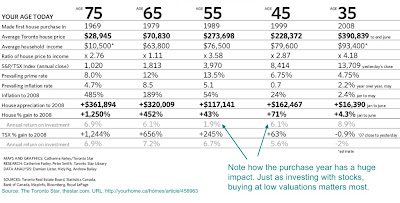Oil Potentially Topping Out

Don't put much weight into my oil calls, but it does look like oil is topping out. I felt the same thing late in 2006 and that turned out to be temporary thing. Who knows for sure but I notice a few things. Firstly... First of all, price is off quite a bit... Secondly... Then ExxonMobil misses earnings for the second time in as many quarters. Missing earnings is not usually a big thing, except when it is a bellwether missing it during a huge bull market. For the quarter, Exxon Mobil posted net earnings of $11.68 billion, or $2.22 a share, up from $10.26 billion, or $1.83 a share, a year earlier. The results narrowly eclipsed its previous record of $11.66 billion, set in the fourth quarter of 2007. Despite the staggering numbers, Wall Street was underwhelmed. Investors polled by FactSet had been looking for a profit of $2.46 a share. It was the second consecutive quarter in which Exxon fell short of their lofty expectations. In a period during which crude-oil prices doubled, Exxon...



